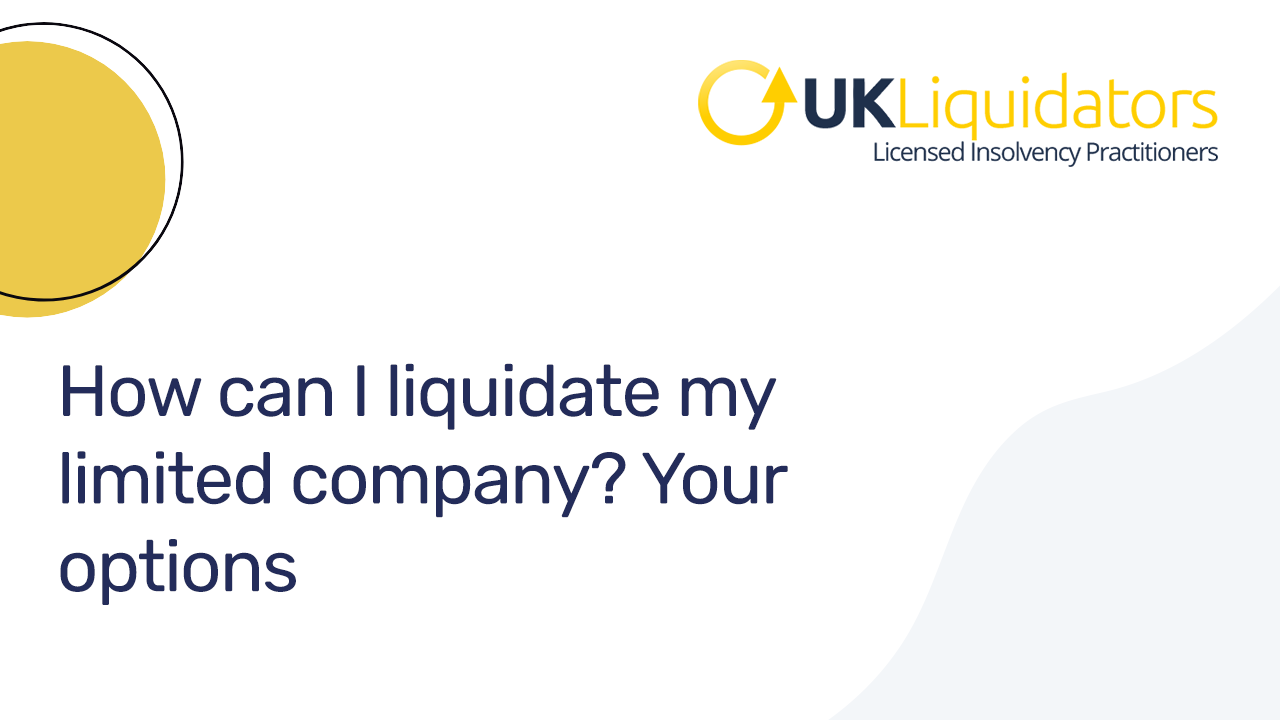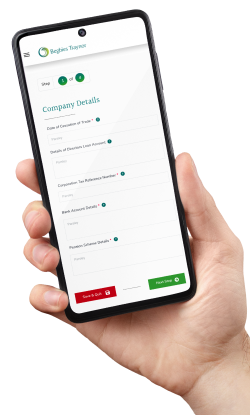Liquidating a limited company in the UK means bringing a formal end to a business which is no longer needed or wanted. Both solvent and insolvent companies can be liquidated.
The company liquidation process involves appointing a licensed insolvency practitioner to identify and sell company assets before using these proceeds to repay outstanding creditors as far as possible. Once a company has been liquidated it ceases to exist as a legal entity.
There are a number of reasons why you may be considering liquidating your company or business. Perhaps the company’s financial issues are making trading on an impossible task, or maybe demand for your company’s products or services is dropping and you are worried about what the future holds.
Alternatively, you may wish to liquidate your solvent business, perhaps due to retirement or a change in career path, in order to extract the profits.

Depending on the financial position of the company at the time of liquidation, there are two main ways a director could choose to liquidate it.
If the business is solvent – meaning the company is able to fully repay its debts and has assets which outweigh its liabilities – a process known as a Members’ Voluntary Liquidation (MVL) may be a suitable option for extracting the profits.
However, if the company is insolvent and has mounting debts which it is struggling to pay, a Creditors’ Voluntary Liquidation (CVL) can be used to bring the company to a close while also dealing with its debts.
Concerned about the National Insurance increase?
For the 2024-25 tax year, the rate of employer National Insurance increases from 13.8% to 15% adding yet more pressure onto already squeezed cash flows. If you are worried about the impact this could have on your company’s finances, talk to the experts at UK Liquidators. As licensed insolvency practitioners we can explain your options and help you plot a way forward. Call today on 0800 063 9262.
Regardless of whether you are liquidating a solvent company through an MVL, or using a CVL to close an insolvent business, the process can only be entered into under the guidance of a licensed insolvency practitioner.
Although both MVLs and CVLs are director-initiated processes, meaning you are the one who is making the decision to place your company into liquidation, you are unable to liquidate your limited company yourself without the input of a licensed insolvency practitioner.
If you have decided to explore the potential liquidation of your business, your first step is to seek advice from an insolvency practitioner. They will talk you through your options and ensure liquidation is appropriate for your company’s situation and your future ambitions.
If it is deemed that liquidation is the best solution, the appointed insolvency practitioner will handle the whole process on your behalf, including dealing with outstanding creditors and ensuring the company is wound down in an orderly manner.
Liquidation Portal
For Company Directors

When an insolvent company is liquidated, all its assets are identified and valued before being sold – or liquidated – by the appointed insolvency practitioner. These proceeds are then used to repay creditors as far as possible.
Creditors are paid according to a set hierarchy as set out in the Insolvency Act 1986. Secured creditors will be first in line for payment, while unsecured creditors - which typically include credit card and supplier debt - will only receive payment once those higher up the chain have been paid. As the company is insolvent, there will be a shortfall between the amount realised and the debts the company has. This means some creditors will be left out of pocket and their debt will remain unpaid.
As a limited company is classed as a separate legal entity to its directors, any debt accrued by the company belongs to the company rather than the directors. Therefore, should an insolvent company enter into a CVL, any debt remaining at the end of the process will be wiped out and responsibility for paying this will not be passed onto the directors or shareholders.
The exception to this is if directors have provided a personal guarantee for any of the company's borrowing. If a personal guarantee has been given then this will crystallise at the point of liquidation, and responsibility for paying the debt will pass to the director(s) who provided the guarantee.
Once a company has been liquidated it will be removed from the register of companies held at Companies House and at this point the company will cease to exist. As long as the appointed insolvency practitioner does not have any concerns regarding the conduct of the company’s directors in the time leading up to it becoming insolvent, they will not face any penalty or further action regarding the company’s liquidation.
Following the liquidation of their company, directors are permitted to set up another company providing they have not been subject to a disqualification order.
If you are planning on incorporating a new limited company after the CVL process has completed, you should seek the advice of your insolvency practitioner beforehand, particularly if you are planning to continue operating within the same industry. Rules around this area are complex and seeking expert liquidation advice can ensure you stay within the lines of the law, protecting yourself, your creditors, and your company.
As a formal liquidation process, such as a CVL, requires the input of a licensed insolvency practitioner, professional fees will be incurred. In many cases, these costs will be covered by the sale of company assets which can be used to pay the insolvency practitioner.
If the company doesn’t have sufficient assets, however, you may need to consider paying the liquidation fees using your personal funds. Depending on how you have been paying yourself through your business, you may be entitled to a redundancy claim once the company enters into insolvent liquidation.
Start your online liquidation today
If you have decided liquidation is the right option for your limited company, you can take the first step and begin the process online using our online portal. Starting the process is quick, simple, and can be done at a time that suits you. Your information will be submitted to your local UK Liquidators insolvency practitioner who will be with you every step of the way. Click here to start your company’s liquidation online.
If you are considering placing your limited company into liquidation, it is vital you seek the advice of an insolvency expert.
At UK Liquidators we have a team of licensed insolvency practitioners located in offices across the length and breadth of the country. We can help you understand your options for closing your company, whether it is in financial difficulty or not, and suggest whether liquidation could be an appropriate solution for you. Call our team today for immediate help and advice from an insolvency expert.
By completing the test, you will receive:
If you are considering liquidation for your company, taking expert advice at an early stage is crucial. At UK Liquidators, our team of licensed insolvency practitioners are committed to providing limited company directors with the help and advice they need to make an informed decision.




Looking for immediate support?
Complete the below to get in touch